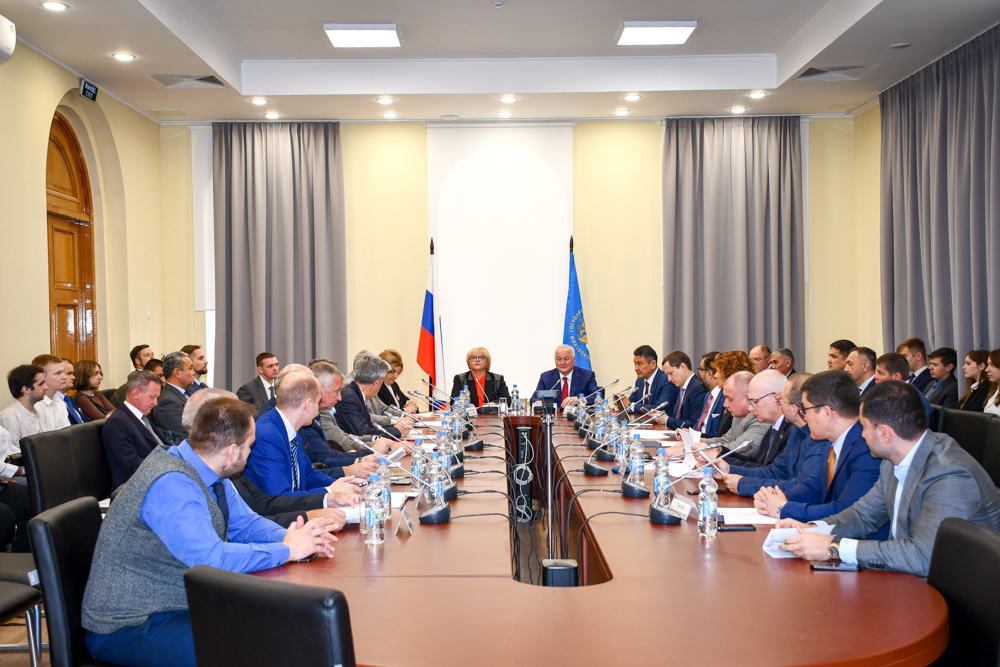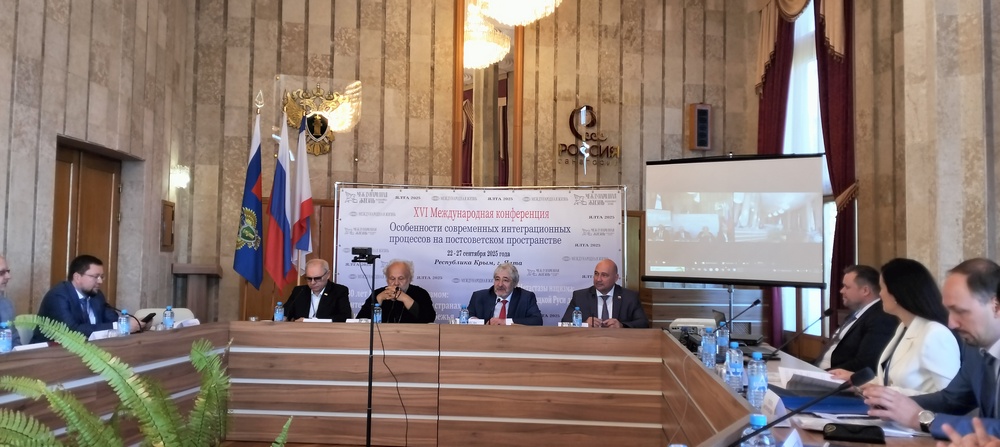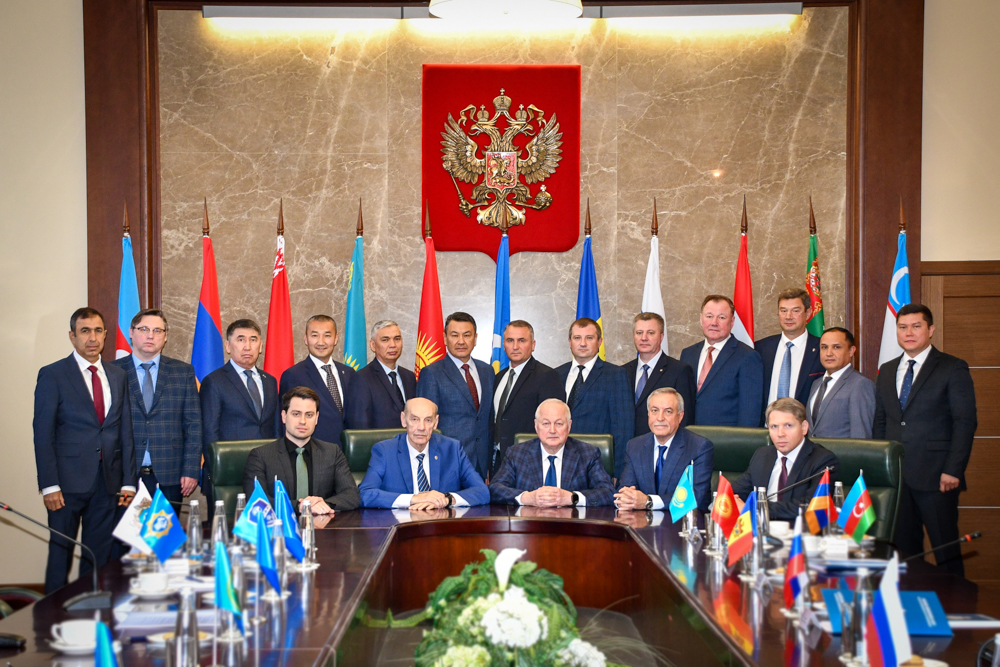April 6, 2023

The XVI meeting of the heads (chiefs of staff) of the national anti-terrorist centers of the CIS member-states was held in Moscow on April 6, 2023.
The meeting brought together representatives of 9 security agencies and special services of the CIS member-states, including from Azerbaijan, Armenia, Belarus, Kazakhstan, Kyrgyzstan, Moldova, Russia, Tajikistan, and Uzbekistan; 6 CIS bodies, namely Executive Committee, Office for Fight on Organized Crime and other Dangerous Types of Crime, Coordinating Service of the Council of Border Troops Commanders, Coordinating Council of Prosecutor Generals, Secretariat of Defense Ministers’ Council, Council of Heads of Financial Intelligence Units; and an international organization – Secretariat of Collective Security Treaty Organization; 2 academia institutions – Russian State University of Il and Gas (National Research University) named after I.M. Gubkin, Moscow State Linguistic University.
The meeting offered a platform for the interested exchange of opinions on burning issues of counter-terrorism and counter-extremism in the CIS. The participants reviewed best practices of the competent authorities in this field, assessed the current situation and trends of its development, outlined the measures to strengthen and improve the cooperation.
In his statement the CIS ATC’s Head E.S. Sysoev noted that the security environment in the Commonwealth states remained complex and tended to worsen amid the increasing international tensions. The threats to the CIS security were developing under the influence of a number of dominant factors, the key of which was continued use of terrorist methods in the power struggle in Afghanistan which remained a center of gravity for the international terrorist organizations.
Noted was a growing production of narcotics of plant and synthetic origin the profit from which sale was used inter alia for terrorist support. The volumes of narcotic drug trafficking both to the Central Asian countries and to other countries through their territories also increased.
The factors which complicated the situation in the region also included food and humanitarian crises deepening the poverty of the population and stimulating migration processes. That was used by terrorist organizations to facilitate penetration of their supporters to the neighboring countries with the aim to form “sleeper” cells and commit terrorist attacks.
The analysis of the developing situation allows us to predict the persisting threats conditioned by the high level of terrorist activity along the southern borders of the Commonwealth and possible export of instability to the CIS area.
Despite the increased workload on the special services, the measures undertaken by the competent authorities, including joint ones, help to maintain adequate control over the situation.
The meeting agenda also covered preparation and conduct of the joint anti-terrorist exercise of the CIS competent authorities “Eurasia-Anti-Terror 2023” to be organized in Kyrgyz Republic in September this year. Today the Center in cooperation with the Kyrgyz State Committee of National Security and CIS partners is at the preparation stage.
The XVI meeting was concluded by adoption of the Outcome document which outlined ways of further improvement of efficiency of cooperation of the special services and highlighted mid-term priority directions of cooperation and coordination of the efforts in the counter-terrorism and counter-extremism field.
An Agreement of Cooperation between the CIS Anti-Terrorism Center and the Coordinating service of the Council of Border Troops Commanders (KSSKPV) and a Memorandum of Cooperation between the CIS ATC and Office for Fight on Organized Crime and other Dangerous Types of Crime in the CIS Territory (BKBOP) were signed on the sidelines of the event.
The signed documents reflected the established practice of joint activities conducted by the CIS ATC, KSSKPV and BKBOP in the legal, coordination, analytical, methodological and scientific areas and concretized specifics of cooperation between those structures.
E.S. Sysoev commended the high level of practical cooperation between the organizations in supporting the interstate search for wanted persons convicted for terrorist and extremist offences, and expressed his confidence that the documents would give an additional impetus to strengthening and developing relations between the organizations.





